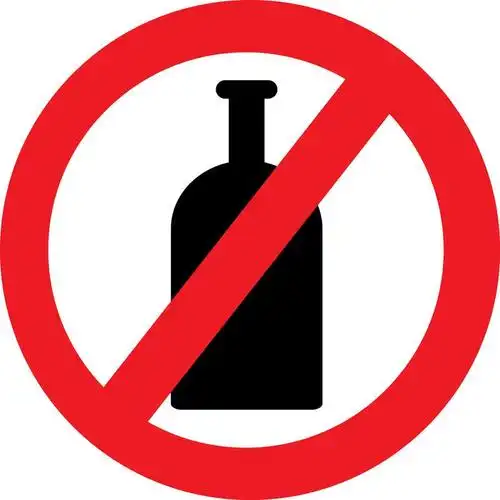The Hidden Trap: Why You Should Avoid Preservative-Laden Snacks When Quitting Alcohol
When embarking on the journey of alcohol cessation, most people focus solely on avoiding alcoholic beverages. However, there's an often overlooked aspect that can significantly impact your success: your snack choices. Many individuals turning away from alcohol find themselves reaching for convenient packaged snacks, unaware that these preservative-heavy options might be sabotaging their efforts in unexpected ways.
The Science Behind Cravings
To understand why preservative snacks pose a problem during alcohol cessation, we must first examine how alcohol affects our brain chemistry. Alcohol consumption alters neurotransmitter activity, particularly dopamine and GABA, creating an artificial reward system. When you remove alcohol, your brain seeks alternative sources of pleasure and comfort.
Preservative-laden snacks, often high in refined carbohydrates, sodium, and artificial additives, provide a quick dopamine hit similar to alcohol. These processed foods can trigger the same pleasure centers that alcohol once activated, potentially reigniting cravings and making abstinence more challenging.
The Blood Sugar Roller Coaster
Many popular snack foods contain high-fructose corn syrup, refined flour, and other simple carbohydrates that cause rapid spikes and crashes in blood sugar levels. This instability mirrors the blood sugar fluctuations caused by alcohol consumption. When your blood sugar crashes, you may experience increased anxiety, irritability, and intensified cravings - all emotions that can weaken your resolve to stay alcohol-free.
Furthermore, the fatigue that follows a blood sugar crash can mimic alcohol withdrawal symptoms, creating additional psychological hurdles in your recovery journey.
Gut Health Connection
Emerging research continues to reveal the profound connection between gut health and mental wellbeing. Alcohol disrupts the gut microbiome, and recovery requires rebuilding healthy intestinal flora. Unfortunately, many preservatives found in packaged snacks - including sodium benzoate, potassium sorbate, and artificial sweeteners - can further damage gut bacteria.
A compromised gut microbiome has been linked to increased anxiety and depression, both of which are common challenges during alcohol cessation. By choosing snacks that support rather than harm your gut health, you create a stronger foundation for emotional stability and reduced cravings.
Hidden Triggers in Preservatives
Certain preservatives may directly impact neurotransmitter activity. For example, some studies suggest that sodium benzoate can affect dopamine levels, while artificial colors have been linked to changes in brain activity. During the delicate recalibration period of alcohol cessation, introducing these chemical compounds may interfere with your brain's natural healing process.
Additionally, many preservative-rich snacks contain monosodium glutamate (MSG) or similar flavor enhancers that can overstimulate taste buds and create artificial cravings for stronger flavors - potentially making alcohol seem more appealing.
Nutritional Depletion Factor
Alcohol abuse often leads to nutritional deficiencies, particularly in B vitamins, magnesium, and zinc. The recovery process requires replenishing these essential nutrients. Preservative-laden snacks typically offer empty calories with minimal nutritional value, providing energy without the necessary building blocks for physical and neurological repair.
By choosing nutrient-dense alternatives, you support your body's healing process and reduce physical symptoms that might trigger the desire to self-medicate with alcohol.
Healthier Alternatives for Successful Recovery
Transitioning to whole food snacks can significantly support your alcohol cessation journey:
Fresh fruits and vegetables provide natural sugars, fiber, and essential vitamins without the blood sugar spikes caused by processed snacks. The act of preparing fresh produce can also serve as a mindful distraction from cravings.

Nuts and seeds offer healthy fats, protein, and magnesium, which helps regulate nervous system function and may reduce anxiety symptoms.
Greek yogurt and fermented foods support gut health restoration through natural probiotics, potentially improving mood regulation and reducing cravings.
Complex carbohydrates like whole grain crackers or oatmeal provide sustained energy release, preventing the blood sugar crashes that can trigger alcohol cravings.
Mindful Snacking Strategies
Developing conscious eating habits is crucial during alcohol cessation. Instead of mindlessly reaching for packaged snacks:
Practice checking ingredient labels and avoiding items with lengthy lists of preservatives and artificial ingredients Establish regular snack times to maintain stable blood sugar levels Keep healthy snacks readily available to avoid temptation when cravings strike Use snacking as an opportunity for mindfulness practice, focusing on flavors and textures rather than eating distractedly
The Psychological Aspect
Changing your snack choices represents more than just physical health improvement; it's a psychological commitment to your recovery. Each conscious decision to choose nourishing foods reinforces your identity as someone who values wellbeing over quick fixes. This mindset shift is fundamental to successful long-term alcohol cessation.
Moreover, preparing healthy snacks can become a positive ritual that replaces alcohol-related routines, helping to rewire habitual patterns associated with drinking.
Conclusion
The path to alcohol-free living requires attention to all aspects of your lifestyle, including seemingly minor choices like snack selection. By avoiding preservative-laden snacks and opting for whole, nutrient-dense alternatives, you support your body's physiological recovery while strengthening your psychological resolve. This comprehensive approach addresses not only the absence of alcohol but the presence of truly supportive nourishment, creating sustainable foundations for long-term success in your sobriety journey.
Remember that every food choice is an opportunity to either support or undermine your recovery goals. By making conscious decisions about what you eat during this critical period, you take active control of your healing process and move closer to lasting freedom from alcohol dependence.




发表评论